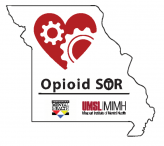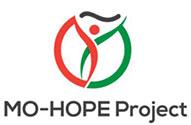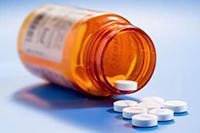The State of Missouri is facing an Opioid Public Health Crisis of epic proportions. It is tragically impacting the lives of families and communities every day. The Department of Mental Health (DMH) has received two federal grants from the Substance Abuse and Mental Health Services Administration (SAMHSA) to provide prevention, treatment and recovery services in response to the Opioid Crisis.
SAMHSA administers the State Targeted Response (STR) and State Opioid Response (SOR) grants to the Opioid Crisis. These grants aim to address the opioid crisis by increasing access to treatment, reducing unmet treatment need, and reducing opioid overdose related deaths through the provision of prevention, treatment and recovery activities for opioid use disorder (OUD) in the States. Below are brief descriptions of these federal grants.
For additional information see the Opioids Factsheet or the Statewide Departmental efforts at opioids.mo.gov.
Missouri received $10 million through STR for each of FY 2017 and 2018, and $18 million through SOR in FY 2018 and 2019, with an additional $9.5 million in supplemental funding. In total Missouri has received $66 million through both grants.
DMH and the Missouri Institute of Mental Health (MIMH) are leading this project. Collaborative partners include substance use disorder and healthcare agencies, organizations, and academic affiliates throughout the state. The grant was received in May 2017.
The primary goals of the Opioid STR/SOR project include:
Prevention Goals
- Promote opioid-related primary prevention in schools and communities.
- Lead chronic pain management education for providers.
- Provide increased access to overdose prevention services such as overdose education and naloxone distribution.
Treatment Goals
- Recruit, train, and support providers for the delivery of medication treatment for Opioid Use Disorder (OUD).
- To provide medication treatment for uninsured individuals with OUD that uses a chronic disease management model.
- To supply hospital-based screening, treatment induction, and connection with community care in the St. Louis area, with statewide expansion.
- Increase access to telemedicine for OUD treatment.
Recovery Goals
- Support safe and effective recovery housing.
- Build the workforce of certified peer specialists to help individuals meet their recovery goals.
- Promote wellness and recovery through recovery community centers in high-need areas.
- Opioid STR/SOR Overview
- Prevention
- Treatment
- Recovery
- Findings
Prevent Drug/Opioid (PDO) Overdose-Related Deaths Grant - $1,000,000 a year for 5 years
DMH provides overall coordination and leadership, with the National Council on Alcoholism & Drug Abuse (NCADA) leading the implementation and MIMH leading the administration and evaluation of the program. This grant was received in September 2016.
The goal of the Missouri Opioid-Heroin Overdose Prevention and Education (MO-HOPE) Project is to reduce the number of opioid overdose-related deaths and adverse events among individuals 18 years of age and older.
Key components of the grant include training emergency responders, substance use disorder treatment providers, and other key community sectors on the prevention of opioid overdose-related deaths. The primary focus is on secondary prevention strategies, including the purchase and distribution of naloxone to persons at risk of experiencing or witnessing an overdose.
MO-HOPE training for diverse professional and community audiences focuses on evidence-based practices to reduce rates of overdose through public health and harm reduction strategies.
In addition to these grants, DMH launched a public education campaign on Prescription Drug Misuse.
An estimated 235,000 Missourians misused prescription drugs last year, which can cause negative health effects including addiction and overdose death. This issue affects individuals young and old and can be prevented. Find out more about this campaign.



